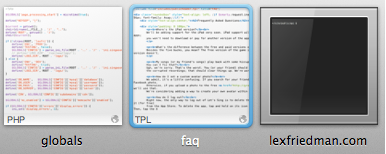
Although most research has focused on methods of improving the accuracy of bird counts, few studies have evaluated the impacts of these methods on bird behavior. PeerJ 7: e8129 ĭrones are reliable tools for estimating colonial seabird numbers.

Response of colonial Peruvian guano birds to flying UAVs: effects and feasibility for implementing new population monitoring methods. Cite this article Irigoin-Lovera C, Luna DM, Acosta DA, Zavalaga CB. For attribution, the original author(s), title, publication source (PeerJ) and either DOI or URL of the article must be cited. Licence This is an open access article distributed under the terms of the Creative Commons Attribution License, which permits unrestricted use, distribution, reproduction and adaptation in any medium and for any purpose provided that it is properly attributed. The Commission will determine whether the information submitted constitutes an appropriate complaint and will follow up according to the established procedures.2 Universidad Nacional Mayor de San Marcos, Lima, Lima, Peru DOI 10.7717/peerj.8129 Published Accepted Received Academic Editor Patricia Gandini Subject Areas Animal Behavior, Conservation Biology, Marine Biology Keywords Guano birds, Disturbance, Colonial birds, UAV, Aerial surveys, Peruvian islands, Cormorants, Boobies, Pelicans, Drone flights Copyright © 2019 Irigoin-Lovera et al. Related to complaints directed at the Commission on Dental Accreditation, interested parties may submit an appropriate, signed complaint to the Commission on Dental Accreditation regarding Commission policy(ies), procedure(s) or the implementation thereof. Anonymous comments/complaints that do not provide sufficient evidence of probable cause of noncompliance with the standard(s) or required accreditation policy(ies), or procedure(s) to proceed, will not be considered. If further investigation is warranted, the anonymous complaint will be handled as a formal complaint (See Formal Complaints) however, due to the anonymous nature of the submission, the Commission will not correspond with the complainant.Īnonymous comments/complaints determined to be unrelated to an Accreditation Standard or CODA policies and procedures will not be considered. inclusion of a complainant’s name within an email or submitted documentation).Īll anonymous complaints will be reviewed by Commission staff to determine linkage to Accreditation Standards or CODA policy and procedures. Any submitted information that identifies the complainant renders this submission a formal complaint and will be reviewed as such (e.g. This investigative approach to complaints does not require that the complainant be identified to the program.Īn “anonymous comment/complaint” is defined as an unsigned comment/complaint submitted to the Commission. In accord with its responsibilities to determine compliance with accreditation standards, policies, and procedures, the Commission does not intervene in complaints as a mediator but maintains, at all times, an investigative role. The Commission is interested in the continued improvement and sustained quality of dental and dental-related education programs but does not intervene on behalf of individuals or act as a court of appeal for treatment received by patients or individuals in matters of admission, appointment, promotion or dismissal of faculty, staff or students. An appropriate complaint is one that directly addresses a program’s compliance with the Commission’s standards, policies and procedures. Students, faculty, constituent dental societies, state boards of dentistry, patients, and other interested parties may submit an appropriate, signed, formal complaint to the Commission on Dental Accreditation regarding any Commission accredited dental, allied dental or advanced dental education program, or a program that has an application for initial accreditation pending.

Complainants who submit complaints verbally will receive direction to submit a formal complaint to the Commission in written, signed form following guidelines in the EOPP manual. This complaint should outline the specific policy, procedure or standard in question and rationale for the complaint including specific documentation or examples.

A complaint is defined by the Commission on Dental Accreditation as one alleging that a Commission-accredited educational program, a program which has an application for initial accreditation pending, or the Commission may not be in substantial compliance with Commission standards or required accreditation procedures.Ī “formal” complaint is defined as a complaint filed in written (or electronic) form and signed by the complainant.


 0 kommentar(er)
0 kommentar(er)
